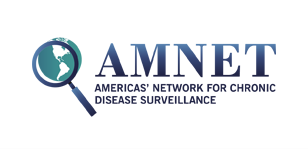Document Type
Conference Proceedings
Abstract
Objective: Leveraging advanced artificial intelligence (AI) tools can enhance melanoma diagnosis and care by supporting physician decision-making. Methods: A search for melanoma studies using AI was conducted on ClinicalTrials.gov (US National Library of Medicine) on August 20, 2024. Results: 26 studies involving melanoma and artificial intelligence resulted from the search with a total enrollment size of 69,609 people. Recruitment status for these 26 studies were as follows: 1 study (3.85%) was not yet recruiting, 6 (23.08%) were recruiting, 3 (11.54%) were active/no recruiting, 9 (34.62%) were completed, 2 (7.69%) were enrolling by invitation, and 5 had an unknown status. Concerning age, 5 studies included children (birth-17 years), 25 (96.15%) included adults (18-64 years), and 25 (96.15%) included older adults (65+ years). Regarding study type, 10 studies (38.46%) were interventional studies, and 16 (61.53%) were observational. In terms of funding, 6 studies (23.08%) were funded by industry, whereas 23 studies (88.46%) were funded by other sources. Sweden was the location for the most studies (n=4, 15.38%), followed by Spain (n=3, 11.54%) and United Kingdom (n=3, 11.54%). 21 studies (80.77%) focused on AI-aided diagnosis of melanoma (3.85%), based a variety of techniques ranging from total-body photography to mole-mapping over time. Conclusion: Artificial intelligence is poised to significantly impact melanoma care by improving early diagnosis and being integrated into the Mohs micrographic surgery workflow.
Recommended Citation
Reddy, Raghuram and Santoyo, Karla C.
(2024)
"Current Landscape of Melanoma Clinical Trials Involving Artificial Intelligence,"
American Journal of Non-Communicable Diseases: Vol. 1:
Iss.
2, Article 11.
DOI: 10.25148/ajncd.1.2.10
Available at:
https://digitalcommons.fiu.edu/ajncd/vol1/iss2/11
Included in
Community-Based Research Commons, Family, Life Course, and Society Commons, Health and Physical Education Commons, Health Communication Commons, Health Economics Commons, Health Psychology Commons, Medicine and Health Commons, Medicine and Health Sciences Commons, Science and Technology Studies Commons, Urban Studies and Planning Commons




